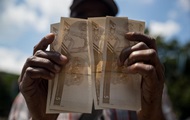Abortions, firearms, religious freedoms… The Supreme Court returns to school on Monday with several sensitive cases which will allow us to measure the influence of the judges chosen by Donald Trump.
For the first time in a year and a half, its nine sages were to meet in person for an audience in the temple of American law. But one of them, Brett Kavanaugh, tested positive for Covid-19 on Thursday and will participate in the remote exchanges.
This magistrate is one of the three judges appointed by the former Republican president who, during his tenure, solidly reinforced the conservative majority of the Court (six judges out of nine).
Last year, this reshuffled Court gave guarantees of its independence, in particular by refusing to validate Donald Trump’s crusade against the verdict of the ballot box.
Right turn
In so-called “shadow” cases – the nickname given to emergency procedures that are not publicly debated – she however began a turn to the right, which came to light on September 1 when she refused. to block a Texas law banning virtually all abortions in that state.
To appease the spirits, its magistrates have striven in recent weeks to convince the public of their impartiality. “This Court is not made up of a bunch of political activists,” said conservative judge Amy Coney Barrett, during a speech in Kentucky.
However, his words suffered from the presence at his side of the leader of the Republicans in the Senate, Mitch McConnell, architect of his hasty confirmation in the middle of the presidential campaign.
Right to abortion
On its menu are indeed the social issues that divide America the most, starting with the right to abortion.
The Supreme Court will consider on December 1 a Mississippi law that prohibits abortion beyond 15 weeks of pregnancy. Defenders of this law ask him to take the opportunity to overturn his emblematic 1973 judgment, Roe v. Wade, in which she held that women had a constitutional right to have an abortion.
During his 2016 campaign, “Donald Trump had promised to bring to the Court judges who would invalidate” this judgment, recently recalled Amy Howe, editor of the specialized site SCOTUSblog. “He named Neil Gorsuch, Brett Kavanaugh and Amy Coney Barrett, and now it’s time to see if his promise comes true.”
Firearms and religious liberties
Another explosive issue: the carrying of firearms. So far the high court has held that Americans have a constitutional right to own a weapon at home for their own defense, without saying anything about carrying weapons outside the home. It could fill this void when considering a New York law that strictly limits the issuance of permits.
The Court will also study the limits placed on the funding of denominational schools. However, it is today “very favorable to religious freedoms”, notes David Cole.
Several death row cases are also on her menu and it is possible that she will accept an appeal against affirmative action policies in universities, which are highly contested in the Republican ranks.
–


